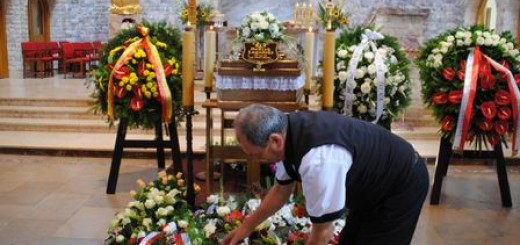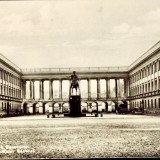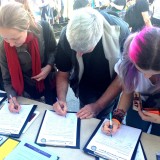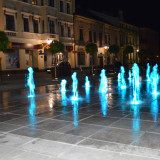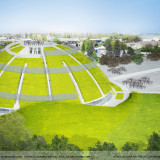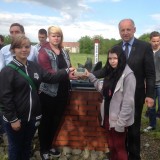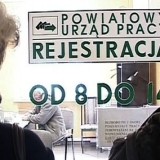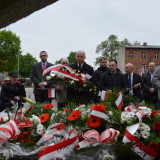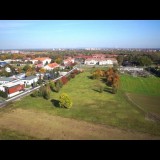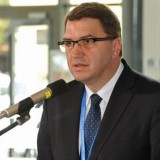Nadzieja Polskich SeniorówHoffnung der Polnischen SeniorenHope of polish Senior’s
Ten problem dotyczy całego kontynentu europejskiego i Polska nie jest tu niestety żadnym wyjątkiem. Mimo rozwoju gospodarczego, kulturalnego i cywilizacyjnego – z roku na rok narasta problem niewystarczająco rozbudowanego systemu opieki i zaspokajania potrzeb osób starszych. Nadchodzi geriatryczne „tsunami” – alarmują w tej sprawie demografowie, socjologowie, duszpasterze. Z niedostatkiem środków i nadmiarem zadań – już teraz – borykają się organizacje społeczne i charytatywne, szpitale, parafie i samorządy. Ciągle brakuje miejsc w domach opieki społecznej, domach seniora, brakuje też świetlic i placówek dziennego pobytu. Jak rozwiązać te problemy w społeczeństwie, które żyje coraz dłużej?
Polska i Europa stoją obecnie przed wyzwaniem tworzenia sprawnych systemów opieki nad seniorami, w których będą mogli oni jak najdłużej żyć samodzielnie i w możliwie jak najlepszej kondycji zdrowotnej. Jak ten mechanizm wygląda w liczbach? Jak wykazują badania i obserwacje – średni wiek życia człowieka systematycznie wzrasta! Gdy pod koniec XIX wieku wynosił on dla Europejczyków ok. 40 lat – to obecnie sięga już niemal lat 80-ciu ! – i wszystko wskazuje , że średnia ta będzie rosła… Według demografów, udział europejskich seniorów powyżej 80. roku życia wzrósł z 0,1 % w roku 1950 do 3,6% w roku 2000 -ym! Jest to więc wzrost 36-cio krotny ! To jednak nie koniec bo już w roku 2025 wskaźnik ten się podwoi do 7,4%, a w 2050 ma przekroczyć 14% populacji!
Warto też przypomnieć, że jeżeli w roku 1900-etnym, przy średniej życia 45 lat, z emerytury po 70 roku życia korzystało ok. 2% populacji – to w roku 2000-ym, przy średnim wieku życia ok. 80 lat, z emerytury korzystało już prawie 20% populacji mieszkańców Europy.
Jednak wysoki wiek – to nie wyrok i nie musi oznaczać potrzeby stałej pielęgnacji jak w przypadku chorych na Alzheimera i różne odmiany demencji.
Niedostatek polskiego systemu opieki nad seniorami polega przede wszystkim na zaniedbywaniu prostej potrzeby wielu ludzi starszych – potrzeby czucia się stale potrzebnymi i docenianymi. Właśnie brak tego uznania ze strony otoczenia powoduje tak częste popadanie ludzi starszych w depresje i apatię…Tymczasem stale się zapomina, że wprawdzie młodzi potrafią szybciej chodzić, ale za to starsi znają dobrze skróty. Jak korzystać z kapitału ich doświadczenia ?
Już w Polowie XIX wieki Abraham Lincoln mówił:
„Nie pomaga ludziom ten kto wykonuje za nich to, co sami jeszcze potrafią zrobić. Pomaga im ten kto im towarzyszy i ich motywuje w wykonywaniu tego, co mogą jeszcze zrobić sami.”
Dlatego tak ważne jest stworzenie współczesnym seniorom odpowiednich warunków do aktywnego życia, aktywnego przeżywania teraźniejszości i kontaktu z nowymi technologiami, w tym szczególnie z internetem. Każda dobra aktywność przyczynia się do lepszego stanu zdrowia, dobrego samopoczucia fizycznego i psychicznego, do zadowolenia z życia.
Długowieczność zobowiązuje też samych seniorów do zdrowego i kompetentnego starzenia się, do aktywności fizycznej, umysłowej i społecznej, a także do ciągłego uczenia się. Dotychczasowe doświadczenia wskazują, że nawet w późnym wieku – można i należy się uczyć. Ćwiczenia umysłowe są bowiem równie ważne jak te fizyczne ponieważ organy nieużywane zanikają – co dotyczy zarówno mięśni jak i zdolności intelektualnych. Na te właśnie wyzwania odpowiada działająca od 2010 roku Polska Unia Seniorów, apolityczne stowarzyszenie będące częścią Europejskiej Unii Seniorów z siedzibą w Parlamencie Europejskim w Brukseli.
To właśnie Polska unia Seniorów zabiega o stworzenie w naszym kraju sieci przyjaznych osobom starszym Domów Spokojnej Jesieni Życia z Opieką. Będzie to możliwe dzięki nawiązanej kilka lat temu współpracy z pochodzącą z Oświęcimia arch. Barbarą Starzyńską i Hansem Citroenem z Rotterdamu w Holandii. To właśnie w Holandii od kilku dekad działa sieć domów seniora według nowatorskiego, autorskiego modelu profesora Hansa Marcela Beckera. Jego współpracownicy, Andre FERMAS i arch. Paul van der Wejden, kilkadziesiąt lat temu stworzyli system kilkunastu domów, głównie pod szyldem organizacji Humanitas Rotterdam. Stale modernizowane i udoskonalane są obecnie szczęśliwą przystanią dla ponad 4 tysięcy seniorów.
Domy powstały zarówno w centrach miast jak i w obszarach podmiejskich – wśród zwykłych osiedli i kanałów. Ich mieszkańcy mają zapewniony szybki dostęp do pomocy medycznej i pielęgnacyjnej. Najważniejsze jest jednak by mogły tam czuć się potrzebne i użyteczne. Dlatego codziennie mają możliwość uczestniczenia w terapiach, warsztatach, zajęciach rehabilitacyjnych, korzystają też z bogatej oferty kulturalnej. Codziennością tych placówek są zajęcia sportowe i gry, koncerty, wykłady, śpiew, taniec. Ponieważ domy nie są placówkami zamkniętymi, a na ich terenie prowadzona jest nieuciążliwa działalność komercyjna (np. gabinety lekarskie, niewielkie sklepiki, bary, restauracje) – seniorzy nie żyją w wyizolowanym środowisku, ale stale otoczeni są gwarem dnia codziennego. Chwile zadumy i skupienia mogą znaleźć nie tylko w obszernych zacisznych pokojach, ale także na modlitwie i nabożeństwie w ustronnej kaplicy ekumenicznej. Dzięki temu w sposób swobodny i wygodny, według swojego uznania, seniorzy prowadzą życie niezależne, korzystając z oferty Domu w zależności od swoich potrzeb: mogą świętować w gronie najbliższych osób, uczyć się korzystania z internetu albo – ruszyć w podróż wspomnień, do czasów swojego dzieciństwa i młodości. Jest to możliwe dzięki muzeum, w którym zgromadzono eksponaty z domowego dnia codziennego, zabytki techniki i różnorodne sprzęty, wyposażenie, zabawki, ubrania – wszystko to w wystroju wnętrz sprzed 50 czy stu lat.
W przeciwieństwie do wielu placówek dla seniorów – tutaj nie zabrania się a wręcz zaleca posiadanie własnego żywego przyjaciela, choć można też podglądać życie zwierząt w przydomowym mini-zoo. Spożywanie codziennych posiłków możliwe jest zarówno w ciszy własnego mieszkania jak i z rodziną lub przyjaciółmi w domowej restauracji. Każdy chętny może korzystać z uroków domowego życia towarzyskiego – zagrać w karty, bilard i inne gry towarzyskie, wypić z sąsiadami i gośćmi w kawiarence kawę lub herbatkę. Gdy tylko dopisuje zdrowie i pogoda seniorzy regularnie wyjeżdżają na wycieczki – grupowe i indywidualne. Również na miejscu możliwe jest otrzymanie lub wypożyczenie sprzętu rehabilitacyjnego i wózków, które są też pieczołowicie serwisowane i naprawiane.
Co być może najważniejsze – domy prowadzone w tym systemie są placówkami dostępnymi niemal dla każdego potrzebującego a nie dla elity najlepiej uposażonych emerytów. W warunkach holenderskich cena pobytu seniora w takim Domu to tylko 720 €miesięcznie , co w tamtych realiach stanowi około 1/3 ceny wolnorynkowej.
Czy podobnie może być w Polsce? Tej kwestii poświęcona była – kolejna już – wizyta, jaką w dniach 13-14 września 2015 roku złożyli w domu Akropolis w Rotterdamie – przedstawiciele Polskiej Unii Seniorów z prezesem Januszem Marszałkiem wraz z reprezentantami środowiska weteranów „Solidarności” – Andrzejem Rozpłochowskim i Eugeniuszem Karasińskim. To właśnie wśród tych weteranów walki o godność człowieka, wolność i niepodległość – jest szczególnie wiele niezamożnych osób, które na skutek komunistycznych represji w przeszłości – teraz, gdy są w podeszłym wieku, potrzebują szczególnego wsparcia i opieki.
Dom – Akropolis w Rotterdamie to duża placówka miejska działająca już od ponad 15 lat. Podczas pobytu delegacja z Polski odwiedziła też najnowszy kompleks domów seniora sieci Humanitas – wybudowany dwa lata temu w małym miasteczku Naalowijk nieopodal Rotterdamu.
Bogaty w program pobyt pozwolił na przeprowadzenie konkretnych rozmów dotyczących zasad, szczegółów i możliwości przeniesienia i zaadaptowania w polskich realiach tego sprawdzonego już w Holandii modelu Domów Seniora. Opracowany wspólnie przez stronę polską i holenderską, zatwierdzony już – Biznes Plan realizacji pierwszego, pilotażowego Domu w Polsce – zakłada, iż placówka będzie miała 135 mieszkań i ok. 60 miejsc pielęgnacyjnych. W jego skład wejdzie część przeznaczona na nieuciążliwą działalność komercyjną o powierzchni około 2000m2, gdzie znajdą się m.in. restauracja, kawiarnia, sklep wielobranżowy, gabinety lekarskie, zabiegowe i rehabilitacyjne. Wydzieloną enklawą będzie część, gdzie prowadzona będzie całodzienna świetlica środowiskowa dla seniorów dochodzących z okolicznych osiedli mieszkaniowych. Zakończona wizyta w Rotterdamie pozwoli Polskiej Unii Seniorów na przyspieszenie prac związanych z rozpoczęciem budowy pierwszego w naszym kraju, wzorcowego Domu Spokojnej Jesieni Życia z Opieką. Wobec lawinowo narastających potrzeb – oby takie domy zaczęły powstawać jak najszybciej!
W polskich realiach inwestycja finansowana będzie w 80% z kredytu bankowego, który spłacony zostanie w ciągu 20 lat. Również w Polsce – cena pobytu w placówce powinna być dostępna dla każdego seniora i wynosić około 1/3 obecnych cen rynkowych.
Autor: Adam Turula i Janusz Marszałek
English version – HOPE OF POLISH SENIOR’S
German version – HOFFNUNG DER POLNISCHEN SENIOREN
Dieses Problem betrifft den gesamten europäischen Kontinent und Polen ist hier leider keine Ausnahme. Trotz der wirtschaftlichen, kulturellen und zivilisatorischen Entwicklung – wird das Problem des unzulänglich entwickelten Systems der Pflegeversorgung älterer Menschen und der Befriedigung ihrer Bedürfnisse von Jahr zu Jahr immer ernster.
Wir werden vom geriatrischen Tsunami überschwemmt – darauf machen uns Demographen, Soziologen, Seelsorger aufmerksam. Schon jetzt mühen sich mit dem Mangel an Hilfsmitteln und mit dem Übermaß an Aufgaben soziale und wohltätige Organisationen, Krankenhäuser, Kirchengemeinden und Kommunen ab.
Es fehlen nach wie vor Plätze in Pflege- und Seniorenheimen, es fehlen auch die notwendigen Seniorentagesstätte -Tagesbetreuungseinrichtungen.
Wie sind diese Probleme zu lösen in einer Gesellschaft, die immer länger lebt?
Polen und Europa stehen nun vor der Herausforderung der Schaffung effizienter Systeme der Pflege für ältere Menschen, in denen sie möglichst lange selbständig und im bestmöglichen Gesundheitszustand leben können.
Was wollen uns zu diesem Mechanismus die Zahlen sagen?
Aus den Forschungen und Beobachtungen geht hervor, dass die Lebenserwartung der Menschen stetig zunimmt! Am Ende des 19. Jahrhunderts haben die Europäer durchschnittlich 40 Jahre gelebt. Derzeit beträgt das Durchschnittsalter fast 80 Jahre! – und all das deutet darauf hin, dass die Lebenserwartung weiter zunehmen wird.
Nach den Demographen erhöhte sich der Anteil der europäischen Senioren, die 80 Jahre erreicht haben, von 0,1 % im Jahr 1950 auf 3,6 % im Jahr 2000 ! Dieses ist eine 36-fache Steigerung! Es ist allerdings nicht das Ende, weil sich diese Zahl im Jahr 2025 auf 7,4% verdoppeln wird. Und im Jahr 2050 soll es mit fast 14% der Bevölkerung das noch übertreffen!
Es sei auch daran erinnert, dass im Jahr 1900 mit einem Durchschnittsalter von 45 Jahren die Altersrente nach dem 70.Lebensjahr von 2 % der Bevölkerung bezogen wurde. Im Jahr 2000 mit einem Durchschnittsalter von 80 Jahren waren dieses schon fast 20 % der Bevölkerung von Europa.
Jedoch das hohe Alter ist keine ausschlaggebende Tatsache und bedeutet nicht zwangsläufig, dass die Menschen in ständiger Pflege sein müssen, wie im Falle von Demenz- und Alzheimer-Patienten.
Die Schwäche des polnischen Systems bei der Seniorenpflege besteht zunächst in der Vernachlässigung des ersten Bedürfnisses vieler älterer Menschen – des Gefühls, für die anderen noch wichtig und nützlich zu sein und auch anerkannt zu werden. Gerade die mangelnde Anerkennung seitens der Nächsten führt die älteren Menschen oftmals zur Depression und Apathie. Mittlerweile vergisst man auch ständig, dass die jungen Menschen schneller gehen können, aber die älteren mit ihren Lebenserfahrungen gut wissen die Abkürzungen.
Wie kann man dieses brachliegende Kapital und diese Erfahrungen wieder in Anspruch nehmen?
Bereits Abraham Lincoln sagte Mitte des 19. Jahrhunderts:
Man hilft den Menschen nicht, wenn man für sie tut, was sie selbst noch tun können.
Man hilft den Menschen aber dennoch, wenn man sie auf dem Weg zur Umsetzung dieses Tuns begleitet und motiviert.
Es ist daher wichtig, den gegenwärtigen Senioren angemessene Bedingungen für ihr aktives Leben, für ihr gutes Erleben der Gegenwart und ihren Kontakt mit den neuen Technologien, insbesondere mit dem Internet zu schaffen. Jede gute Aktivität trägt zum besseren Zustand der Gesundheit, zum körperlichen und geistigen Wohlbefinden, zur Zufriedenheit mit dem Leben bei.
Die Senioren werden durch ihre Langlebigkeit verpflichtet, gesund und kompetent zu altern, körperlich, geistig und sozial aktiv zu sein sowie kontinuierlich zu lernen. Die bisherige Erfahrung zeigt, dass man auch im späten Alter lernen kann und soll. In der Tat sind die mentalen Übungen genauso wichtig wie die physischen, weil ungenutzte Organe verkümmern – dies betrifft sowohl Muskeln, als auch intellektuelle Fähigkeiten.
Um diesen Herausforderungen gerecht zu werden, ist seit 2010 die Polnische Senioren-Union tätig. Sie ist ein parteifreier Verein und seit 2011 Mitglied der Europäischen Senioren-Union mit dem Sitz im Europäischen Parlament in Brüssel.
In der Tat ist die Polnische Senioren-Union bestrebt, in Polen ein gut funktionierendes Netzwerk für die älteren Menschen und freundliche Wohngemeinschaften für die Senioren zu erstellen.
Dies ermöglicht die gute Zusammenarbeit der Polnischen Senioren-Union mit der Rotterdamer Organisation, die vor einigen Jahren die aus Oświęcim stammende Architektin Barbara Starzyńska und Hans Citroen aus Rotterdam aufgebaut haben. In den Niederlanden funktioniert gerade seit mehreren Jahrzehnten ein Netzwerk von Seniorenwohngemeinschaften nach dem innovativen Autoren-Modell von Professor Hans Marcel Becker. Seine Mitarbeiter, Andre Vermaas und Architekt Paul van der Weijden haben vor Jahrzehnten ein System – vor allem unter dem Namen der Organisation Humanitas Rotterdam – erstellt, das aus mehreren Einrichtungen besteht. Diese Idee und das System werden ständig verbessert und modernisiert. Heutzutage wohnen in dieser glücklichen Oase mehr als 4.000 Seniorinnen und Senioren.
Die Häuser wurden in den Ballungsgebieten und in Vorstadtgebieten der normalen, gewöhnlichen Stadtteilen und an den Kanälen errichtet. Ihren Bewohnern wird der schnelle Zugriff auf medizinische Betreuung und Pflege sichergestellt. Am wichtigsten ist es jedoch, dass sie sich glücklich und nützlich fühlen können. Sie können jeden Tag an Therapien, Workshops, und Rehabilitationsveranstaltungen teilnehmen. Sie genießen ein reichhaltiges kulturelles Angebot.
Alltäglich finden in diesen Einrichtungen Sportveranstaltungen und Spiele, Konzerte, Vorträge, Gesang- und Tanzeabende statt. Weil diese Häuser keine geschlossenen Einrichtungen sind, gibt es darin unauffällige kommerzielle Tätigkeiten wie z.B. Ärztpraxen, kleine Geschäfte, Caffee-Bar, Restaurant. Die Geschäfte werden geführt, damit die Seniorinnen und Senioren nicht in einer isolierten Umgebung leben, sondern ständig von dem Trubel des Alltags umgeben werden. Sie können Momente der Besinnung und Konzentration nicht nur in schönen Wohnungen, sondern auch beim Gebet oder Gottesdienst in der eigenen ökumenischen Kapelle finden.
Dadurch führen die Senioren ein freies, unabhängiges und bequemes Leben, nach eigenem Ermessen, indem sie das Angebot des Hauses je nach Bedarf in Anspruch nehmen: sie können im Kreis der Mitmenschen feiern, das Internet nutzen, lernen oder – eine Reise in die Vergangenheit vornehmen, um die Erinnerungen aus der Zeit ihrer Kindheit und Jugend noch einmal zu erleben. Dies ermöglicht das Hausmuseum, in dem die Exponate aus dem Haushalt des Alltags, technische Denkmäler und eine Vielzahl von Möbeln, Geräten, Spielzeug, Bekleidungsstücken – alles in der Innenarchitektur von vor 50 oder hundert Jahren.
Im Gegensatz zu vielen Einrichtungen für Senioren – hier ist es nicht verboten, sondern sogar empfohlen, einen lebendigen Freund zu haben, oder auch das Leben der Tiere in einem Mini-Zoo beobachten zu können.
Die täglichen Mahlzeiten können sowohl in der Stille der eigenen Wohnung, als auch mit der Familie oder Freunden im Restaurant der Einrichtung verzehrt werden.
Je nach Wunsch kann jeder das gesellschaftliche Leben genießen – Karten, Billard und andere Spiele spielen, mit den Nachbarn und Stammgästen in der Bar Kaffee oder Tee trinken. Beim guten Wetter können die Senioren regelmäßig Einzel- und Gruppenausflüge machen.
Auch es ist vor Ort möglich, die Rehabilitationsgeräte und Rollstühle zu erhalten oder auszuleihen, die auch sorgfältig gewartet und repariert werden.
Vielleicht ist es am wichtigsten, dass die in diesem System geführten Häuser für jeden Bedürftigen erschwinglich sind, und nicht nur für die Elite der betuchten Rentner. Für die niederländischen Verhältnisse beziffert sich der Preis in diesen Häusern mit nur 720 € pro Monat, was in diesen Realitäten sehr günstig ist.
Kann die Lage der Senioren in Polen auch ähnlich werden?
Diese Frage stellte sich nicht nur während des ersten Besuches, der am 13.-14. September 2015 in Rotterdam von den Vertretern der Polnischen Seniorenunion mit dem Präsidenten Janusz Marszałek, einschließlich der Vertreter der Veteranen der Gewerkschaft „Solidarność” – Herr Andrzej Rozpłochowski und Eugeniusz Karasiński abgehalten wurde. Es sind gerade unter diesen Veteranen des Kampfes um Menschenwürde, Freiheit und Unabhängigkeit – besonders viele einkommensschwache Personen, die infolge der kommunistischen Unterdrückung in der Vergangenheit erlitten haben. Jetzt, wenn diese Menschen älter sind, brauchen sie besondere Unterstützung und Betreuung.
Das Haus – Akropolis in Rotterdam ist eine große städtische Einrichtung, die seit über 15 Jahren funktioniert. Die polnische Delegation besuchte während ihres Aufenthalts auch den neuesten Komplex von Seniorenheimen des Netzwerkes Humanitas, der vor zwei Jahren in einer kleinen Stadt Naalowijk in der Nähe von Rotterdam gebaut wurde.
Das intensive Programm während des Aufenthaltes ermöglichte es, konkrete Gespräche über Grundsätze, Details und die Möglichkeit der Übertragung und Anpassung an die polnischen Realitäten um auch ein solches, sich bereits in Holland bewährten Modells für Senioreneinrichtungen in Polen durchzuführen.
Der bereits von der Bank genehmigte Business Plan für die Umsetzung des ersten Pilotprojektes geht davon aus, dass in 3 Stockwerken dieser Einrichtung 135 Wohnungen und im 4. Stockwerk ca. 60 Pflegestellen geschaffen werden. In der Parterre kommt ein Teil für kommerzielle Tätigkeit auf einer Fläche von ca. 2000 m2, wo ein Restaurant, Café-Bar, kleiner Supermarkt und auch Rehabilitatios- und Ärztepraxen geplant sind. Ein Teil wird eine separate Enklave bilden, in der eine Tagesstätte für Senioren auch von der umliegenden Wohnsiedlung geführt wird.
In der polnischen Realität wird diese Investition zu 80% durch einen Bankkredit für 20 Jahre finanziert. Auch in Polen kann der Monatspreis für die Wohnung in dieser Einrichtung für durchschnittliche Seniorinnen und Senioren von den eigenen Renten bezahlt werden.
Der in Rotterdam abgeschlossene Besuch bestärkt den Wunsch der Polnischen Senioren-Union, die Arbeiten, die im Zusammenhang mit dem Bau der ersten Muster-Alten- und Pflegewohngemeinschaft für die Seniorinnen um Senioren in Polen stehen, aufzunehmen und eine solche zu erstellen.
Angesichts der schnell wachsenden Bedürfnisse sollte das erste Haus und dann die weiteren so schnell wie möglich gebaut werden!
Adam Turula und Janusz Marszalek
English version – HOPE OF POLISH SENIOR’S
Polish version – NADZIEJA POLSKICH SENIORÓW
This problem affects the entire European continent and, unfortunately, Poland is no exception here.
Despite economic, cultural and civil development, the problem of an inadequately developed system of nursing care for the elderly, and the meeting of their needs, increases from year to year.
We will be flooded by a geriatric tsunami – demographers, sociologists and pastors draw our attention to this. Already, social and charitable organisations, hospitals, parishes and communities struggle with the lack of resources and with the excessive number of tasks.
There continues to be a lack of space in nursing homes and homes for the elderly; there are also not enough senior day-care centres and premises for daycare facilities. How are these problems to be solved in a society that lives ever longer?
Poland and Europe are now facing the challenge of creating efficient systems of care for the elderly, in which they can live independently as long as possible and in the best of health. What do the statistics tell us about this development…
Research and observations indicate that the life expectancy of people is steadily increasing! At the end of the 19th century, Europeans lived an average of 40 years. Currently, the average age is almost 80 years! – and all this suggests that life expectancy will continue to increase.
According to demographers, the share of European seniors who have reached 80 years increased from 0.1% in 1950 to 3.6% in 2000! This is an increase of 36 times! However, it is not the end, because this number will double in 2025 to 7.4%. And in 2050 it will probably have exceeded almost 14% of the population!
It should also be remembered that, in the year 1900, with an average age of 45 years, the retirement pension after 70 was taken up by 2% of the population. In 2000, with an average age of 80 years, this was almost 20% of the population of Europe. However, old age is not a decisive fact and does not necessarily mean that people have to be in constant care, as in the case of dementia and Alzheimer’s patients.
The weakness of the Polish system in elderly care is primarily in the neglect of the first need of many older people – the feeling of still being important and useful to others, and also to be recognised. It is precisely the lack of recognition on the part of those closest that often leads the elderly to depression and apathy. Meanwhile, one forgets constantly that young people can go faster, but the elderly, with their life experiences, know the short-cuts better.
How could this unexploited capital and experience be utilized again?
Already Abraham Lincoln said in the mid-19th century:
“You do not help people by doing for them what they can still do themselves. However, one helps people by accompanying and motivating them by their performance which they still can do.”
It is therefore important for present seniors to create appropriate conditions for their active life, for their good experience of today and their contact with new technologies, especially the internet. Every good activity contributes to a better state of health, to physical and mental well-being, to satisfaction with life.
The elderly are obliged, through their longevity, to be healthy and capable, physically, mentally and socially active, and to learn continuously. Past experience shows also that one can and should learn in later age. In fact, mental exercises are as important as physical, because unused organs fade – this concerns both muscles as well as intellectual abilities.
To meet these challenges, the Polish Seniors’ Union has been active since 2010. It is an apolitical association and since 2011 a member of the European Seniors’ Union, with its headquarters in the European Parliament in Brussels.
In fact, the Polish Seniors’ Union is striving to establish in Poland a well-functioning network for the elderly, and friendly residential communities for seniors. This is made possible through good cooperation between the Polish Seniors’ Union and the Rotterdam organization, built a few years ago by the architect Barbara Starzyńska, a native of Oświęcim, and Hans Citroen from Rotterdam.
In the Netherlands, since several decades a network of seniors’housing communities is functioning following the innovative model of Professor Hans Marcel Becker. His staff, Andre Vermaas and architect Paul van der Weijden, have developed a system decades ago– most notably under the name of the organization „Humanitas” Rotterdam – which consists of several facilities. This idea and the system are constantly being improved and modernised. Nowadays, more than 4,000 senior citizens live in this happy oasis.
The houses were built in urban and suburban areas of normal, ordinary neighbourhoods and along the canals. Fast access to immediate medical and nursing care is guaranteed to the inhabitants. The most important thing is, however, that they can feel happy and useful. They can participate every day in therapies, workshops and rehabilitation events. They enjoy a rich cultural offering.
In these premises, sports events, concerts, lectures, singing and dance evenings take place daily. Because these buildings are not closed institutions, there are inconspicuous commercial activities such as, for example, surgeries, small shops, a café bar and restaurant. The businesses are conducted to ensure that seniors do not live in an isolated environment but are constantly surrounded by the hustle and bustle of everyday life. They can find moments of reflection and concentration not only in nice apartments, but also in prayers or worship in their own ecumenical chapel.
Consequently, the elderly lead a free, independent and comfortable life, at their own discretion, while taking up the offer of the house according to their wishes: they can celebrate in the circle of others, use the internet, learn or – take a journey into the past, in order to experience again memories from the time of their childhood and youth. This is made possible by the house museum, where exhibits can be found from the household of everyday life: technical monuments and a variety of furniture, appliances, toys, clothing – everything from the interior design of 50 or a hundred years ago.
Unlike many institutions for seniors – here it is not forbidden, but even recommended to have a living friend, or to be able to observe the life of animals in a mini-zoo as well. Daily meals can be consumed in the calm of one’s own apartment, as well as with family or friends in the restaurant in the premises.
According to ones wish, everyone can enjoy a social life – playing cards, billiards and other games, drinking coffee or tea with the neighbours and regulars at the bar. During good weather, the seniors can make regular individual and group excursions.
It is also possible there to obtain or borrow rehabilitation equipment and wheelchairs, which are carefully maintained and repaired. Perhaps the most important fact is that the houses managed in this system are affordable to everyone in need, and are not just for the elite of wealthy pensioners. For Dutch circumstances, the price in these houses at only €720 per month, is very favourable.
Could the seniors in Poland have a similar possibility?
This question was asked yet again by the representatives of the Polish Seniors’ Union with their President Janusz Marszalek, and also the representatives of the veterans of the trade union „Solidarity” – Mr. Andrzej Rozpłochowski and Mr. Eugeniusz Karasiński – during their visit to Rotterdam which took place from 13-14th September 2015. Particularly among those veterans of the struggle for human dignity, freedom and independence are many individuals on low-income, who have suffered under communist repression in the past. Now, when these people are older, they need special support and care.
The “Akropolis” house in Rotterdam is a large urban institution that has operated for over 15 years. During their stay, the Polish delegation also visited the newest complex of retirement homes of the Humanitas network, which was built in the small town of Naalowijk, near Rotterdam, two years ago.
The intensive program during their stay made it possible to carry out concrete discussions about principles, details and the possibility of transfer and adaptation to Polish conditions, in order to introduce for seniors in Poland a proven model as that in Holland.
The Business Plan already approved by the bank for the implementation of the first pilot project assumes 135 apartments in 3 levels and on the 4th floor about 60 nursing places will be created. On the ground floor, an area for commercial activity providesapproximately 2,000 m2, where a restaurant, café-bar, a small supermarket and also rehabilitation and doctors’ surgeries are planned. A portion will form a separate enclave, in which a day-care centre will be run also for senior citizens from the surrounding residential area.
Under Polish requirements, this investment will be 80% financed by a bank loan for 20 years. In Poland, the monthly price for the apartment in this facility can be paid for by average senior citizens from their own pensions.
The visit completed in Rotterdam reinforces the wish of the Polish Seniors’ Union that the works that are related to the construction of the first model-nursing care and community home for seniors in Poland to be started. In view of the rapidly growing needs, the first house and then the others should be built as soon as possible!! – by, among others says the movie HOPE OF POLISH SENIOR’S by Andrzej Turula.
Polish version – NADZIEJA POLSKICH SENIORÓW
German version – HOFFNUNG DER POLNISCHEN SENIOREN

